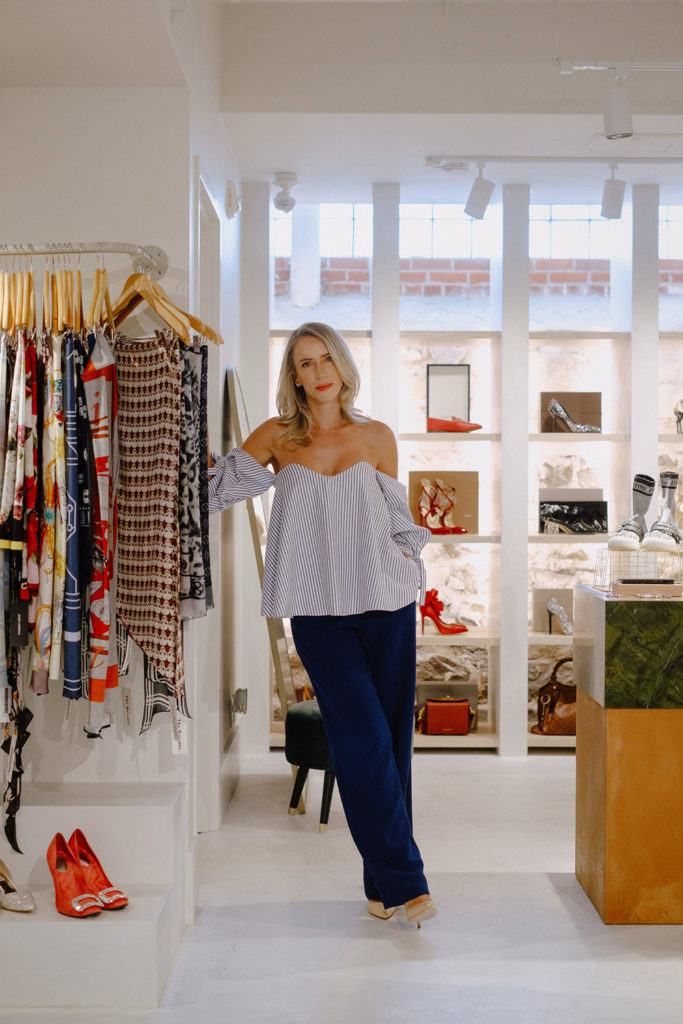all my career has been about using technology to sell luxury second-hand clothes. But my starting point was traditional fashion: When I was a commerce student at the University of Calgary, I interned with designer Paul Hardy. That was my behind-the-scenes introduction to retail, like sourcing materials and merchandising products.
While traveling abroad with Paul to show his collections, I fell in love with Paris. I moved there in 2009 when I graduated from college. I lived off my savings because my French was never good enough to get a job. I didn’t want to compromise on style, so I bought vintage clothes. I still have a pair of ivory Chie Mihara shoes from my time there.

After two years in Paris, I ran out of money and returned to Canada. My aunt worked at a consignment store in Calgary, which sparked an idea: she could bring consignment shopping to a larger market by doing it online. I started building my first business, an online luxury goods retailer, from my basement while working full time at an insurance company.
I needed products so I asked my friends if I could resell their products. It took me six months to gather enough designer clothes and accessories to get them up and running. The Upside launched in 2015 with my aunt as the head of retail. We offer resellers up to 80 percent back on the selling price of an item. I kept my full-time job for the first year and a half, after which I was able to pay myself. I would work all day, take care of my daughter until bedtime, and then focus on The Upside.
In 2020, we took over a 5,000-square-foot space in one of Calgary’s historic buildings. Last year, we changed brands and became the scalper. We are now Canada’s largest online reseller of authenticated designer items.
When I started, “consignment” was a dirty word. You did it because you couldn’t afford to buy a new one. But consumer perception has changed, and the North American resale clothing market is expected to grow eight times faster than the overall clothing market by 2026. People understand that it’s better for your wallet and better for the environment. . That said, consignment is still an afterthought: consumers think about it well past the time they’ve stopped using something.
When I started, “consignment” was a dirty word
I realized that if we could tell customers up front what they could get for something, even before they buy it, we could incentivize more people to sell their products and also get brands involved in reselling. That’s what my new company, Reupp technology, it’s about. We launched software last fall that lets customers know how much they can sell an item for directly on a retailer’s website. If they choose to “lock in” the guaranteed buyback price, which is displayed alongside the retail price at the point of sale, we remind them of their buyback offer in one year. They get cash from ReUpp or a site credit from the brand they originally purchased. We then sell the item on behalf of the brands on sites like The Revenge and eBay and give them a cut of the proceeds. We make money in two ways: from the platform fees we receive from brands and from the income we earn from reselling.
We’ve started with Canadian labels like Smythe and have investors from Saks Fifth Avenue and Gap. We won the Audience Choice Startup Award at Shoptalk 2022, which will help build on the momentum we have after raising $750,000 in pre-seed funding last year. We started out in fashion, but I’m excited to see how we can help other companies resell products. I keep joking: “Someone from Peloton, call me!”
